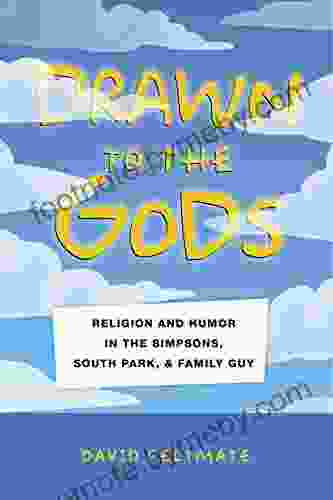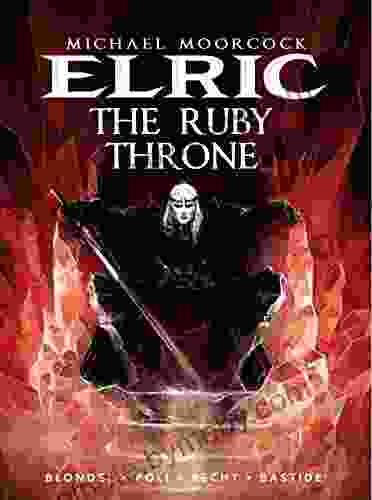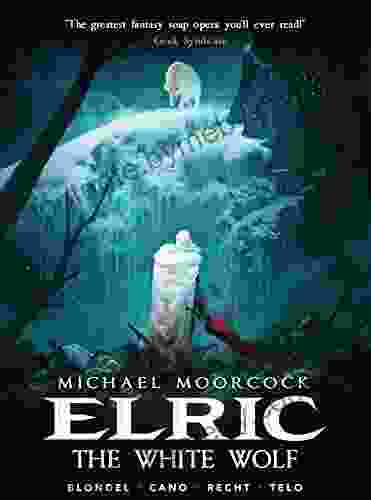Religion and Humor in The Simpsons, South Park, and Family Guy: A Hilarious and Thought-Provoking Exploration

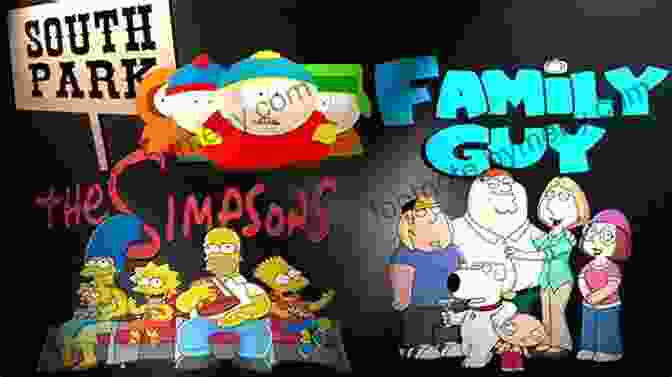
: The Holy Trinity of Animated Comedy
In the ever-evolving landscape of television entertainment, animated sitcoms have emerged as a formidable force, captivating audiences worldwide with their witty humor, engaging characters, and subversive themes. Among the most iconic and influential animated sitcoms of all time are The Simpsons, South Park, and Family Guy, three shows that have not only entertained millions but also sparked countless conversations about religion, society, and the human condition.
5 out of 5
| Language | : | English |
| File size | : | 1405 KB |
| Text-to-Speech | : | Enabled |
| Screen Reader | : | Supported |
| Enhanced typesetting | : | Enabled |
| Word Wise | : | Enabled |
| Print length | : | 295 pages |
This comprehensive article delves into the intricate relationship between religion and humor in these three groundbreaking shows, exploring how they have tackled religious topics with varying degrees of irreverence, wit, and thoughtfulness. From The Simpsons' gentle satires to South Park's provocative provocations and Family Guy's gleefully blasphemous gags, we will uncover the complex and sometimes paradoxical ways in which these shows use humor to address profound questions about faith, belief, and the nature of the divine.
The Simpsons: Subtly Skeptical and Affectionately Irreverent
The Simpsons, the longest-running American animated sitcom, has consistently approached religious themes with a unique blend of skepticism and affection. The show's humor often lies in its gentle poking fun at the idiosyncrasies of organized religion, while simultaneously exhibiting a deep understanding and respect for the beliefs of others.
One recurring theme in The Simpsons is the tension between religion and science, epitomized by the lovable but dimwitted Ned Flanders, whose unwavering faith often contrasts with the rationalism of his neighbor, Homer Simpson. In the episode "Bart's Comet," Homer accidentally discovers a comet hurtling towards Earth and attempts to warn the authorities, only to be dismissed by religious leaders who believe the comet is a sign from God. The episode humorously exposes the inherent conflict between scientific knowledge and religious dogma, while ultimately affirming the importance of both perspectives.
Another notable aspect of The Simpsons' religious humor is its exploration of the hypocrisy and corruption that can sometimes be found within organized religion. In the episode "Homer the Heretic," Homer becomes an atheist after reading a book by noted atheist author Richard Dawkins. While Homer's atheism is initially met with shock and disbelief by the townspeople of Springfield, he gradually wins them over with his newfound skepticism and honesty. The episode cleverly satirizes the fear and intolerance that can arise from religious differences, while also highlighting the value of critical thinking and open-mindedness.
Ultimately, The Simpsons' religious humor is characterized by its subtlety and nuance. The show rarely engages in outright mockery or sacrilege, instead preferring to explore the complexities of faith and belief in a relatable and often heartwarming manner.
South Park: Provocative, Controversial, and Uncompromising
South Park, the brainchild of Trey Parker and Matt Stone, is renowned for its no-holds-barred approach to satire, frequently tackling religious topics with a level of audacity that few other shows would dare. The show's humor is often irreverent, outrageous, and deeply offensive to some, yet it also contains a sharp wit and a keen eye for social commentary.
One of South Park's most famous and controversial episodes is "Super Best Friends," which features a thinly veiled portrayal of Jesus Christ as a manipulative and self-serving figure. The episode sparked outrage among religious groups, but Parker and Stone defended their decision to satirize Jesus, arguing that it was essential to challenge the blindly devout.
Another recurring theme in South Park is the hypocrisy of religious institutions. In the episode "Trapped in the Closet," it is revealed that Stan Marsh, one of the show's main characters, is gay, a fact that sends shockwaves through the highly conservative town of South Park. The episode humorously exposes the double standards of religious leaders who preach tolerance and acceptance but condemn homosexuality.
South Park's religious humor is often confrontational and intentionally offensive, but it is also undeniably thought-provoking. The show challenges viewers to question their own beliefs and assumptions, and to confront the often uncomfortable realities of religion in the modern world.
Family Guy: Gleefully Blasphemous and Surprisingly Insightful
Family Guy, created by Seth MacFarlane, is known for its raunchy humor, pop culture references, and gleeful blasphemy. While the show may not possess the same level of social commentary as The Simpsons or South Park, it dennoch tackles religious topics with a surprisingly insightful and often hilarious perspective.
One of the most recurring religious themes in Family Guy is the absurdity of religious dogma. In the episode "Holy Crap," for example, Peter Griffin becomes a devout Christian after a near-death experience, only to revert to his old sinful ways once he realizes that God is not real. The episode humorously exposes the superficiality of faith based on fear or self-interest.
Another notable aspect of Family Guy's religious humor is its exploration of the tension between religion and reason. In the episode "The Book of Mormon Musical," Peter and his friends travel to Utah to see the Broadway musical about the Mormon faith. While the episode contains plenty of irreverent humor, it also offers a surprisingly nuanced and sympathetic portrayal of Mormon culture, highlighting the importance of community and tradition.
Despite its reputation for being gleefully blasphemous, Family Guy often exhibits a surprising level of empathy and understanding towards religious beliefs. The show recognizes the importance of faith in many people's lives, and it rarely mocks religion for the sake of mockery alone.
: The Enduring Power of Religious Humor
The Simpsons, South Park, and Family Guy are three of the most influential animated sitcoms of all time, and their groundbreaking approach to religious humor has left an indelible mark on popular culture. These shows have challenged traditional notions of faith, belief, and the divine, often sparking controversy but also fostering important conversations about the role of religion in society.
From The Simpsons' gentle satires to South Park's provocative provocations and Family Guy's gleefully blasphemous gags, these shows have demonstrated that religion can be a fertile ground for humor, and that humor can be a powerful tool for exploring the complexities of faith and belief.
Whether you are a devout believer, a fervent atheist, or somewhere in between, the religious humor found in The Simpsons, South Park, and Family Guy is sure to provoke laughter, thought, and perhaps even a newfound appreciation for the enduring power of human curiosity.
5 out of 5
| Language | : | English |
| File size | : | 1405 KB |
| Text-to-Speech | : | Enabled |
| Screen Reader | : | Supported |
| Enhanced typesetting | : | Enabled |
| Word Wise | : | Enabled |
| Print length | : | 295 pages |
Do you want to contribute by writing guest posts on this blog?
Please contact us and send us a resume of previous articles that you have written.
 Book
Book Novel
Novel Page
Page Chapter
Chapter Text
Text Story
Story Genre
Genre Reader
Reader Library
Library Paperback
Paperback E-book
E-book Magazine
Magazine Newspaper
Newspaper Paragraph
Paragraph Sentence
Sentence Bookmark
Bookmark Shelf
Shelf Glossary
Glossary Bibliography
Bibliography Foreword
Foreword Preface
Preface Synopsis
Synopsis Annotation
Annotation Footnote
Footnote Manuscript
Manuscript Scroll
Scroll Codex
Codex Tome
Tome Bestseller
Bestseller Classics
Classics Library card
Library card Narrative
Narrative Biography
Biography Autobiography
Autobiography Memoir
Memoir Reference
Reference Encyclopedia
Encyclopedia Ilchi Lee
Ilchi Lee David Lundberg
David Lundberg David Gilmour
David Gilmour Dave Bahr
Dave Bahr David Benjamin
David Benjamin David Morrell
David Morrell David Borsa
David Borsa David A Bogart
David A Bogart Martin Feil
Martin Feil David Rowan
David Rowan Carolyn Forche
Carolyn Forche Bruce Feiler
Bruce Feiler Clint Coons
Clint Coons Cailyn Lloyd
Cailyn Lloyd David C Korten
David C Korten Debbie Madson
Debbie Madson David Stevens
David Stevens Dan Shaughnessy
Dan Shaughnessy David Miller
David Miller David Taylor
David Taylor
Light bulbAdvertise smarter! Our strategic ad space ensures maximum exposure. Reserve your spot today!

 David MitchellWealth and Power in the New Russia: Uncovering the Secrets of Russia's Elite
David MitchellWealth and Power in the New Russia: Uncovering the Secrets of Russia's Elite Bryce FosterFollow ·7k
Bryce FosterFollow ·7k Efrain PowellFollow ·12.1k
Efrain PowellFollow ·12.1k Gil TurnerFollow ·2.9k
Gil TurnerFollow ·2.9k Roland HayesFollow ·19.2k
Roland HayesFollow ·19.2k Jamison CoxFollow ·3.5k
Jamison CoxFollow ·3.5k Manuel ButlerFollow ·9.9k
Manuel ButlerFollow ·9.9k Elton HayesFollow ·19.3k
Elton HayesFollow ·19.3k Mario SimmonsFollow ·4.9k
Mario SimmonsFollow ·4.9k

 Jayden Cox
Jayden CoxFaith Lies and the War on Terror: Exposing the Truth...
In the aftermath of the 9/11...

 Jack Powell
Jack PowellMad About the Trump Era: Mad Magazine 2024
The Trump...

 Warren Bell
Warren BellYou Got This: Tips for Women Who Want to Rock at Real...
Real estate...
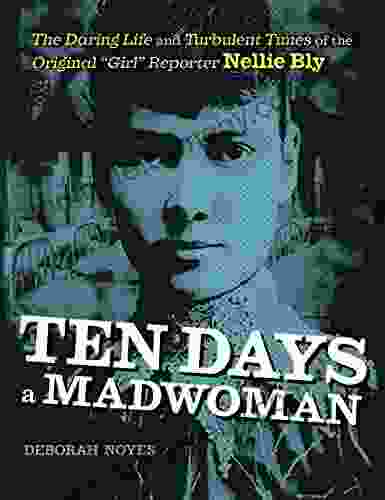
 Ernest Cline
Ernest ClineThe Daring Life and Turbulent Times of the Original Girl...
: Embracing the Spirit of Adventure In...
5 out of 5
| Language | : | English |
| File size | : | 1405 KB |
| Text-to-Speech | : | Enabled |
| Screen Reader | : | Supported |
| Enhanced typesetting | : | Enabled |
| Word Wise | : | Enabled |
| Print length | : | 295 pages |


